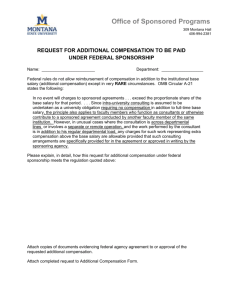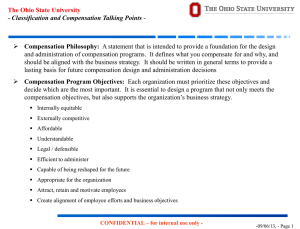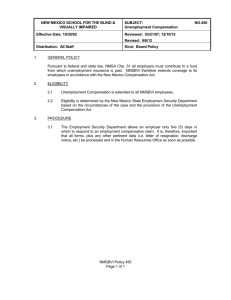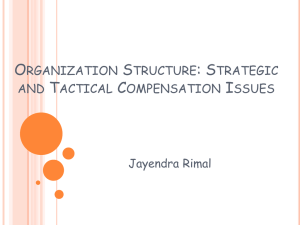Extra Compensation Policy
advertisement
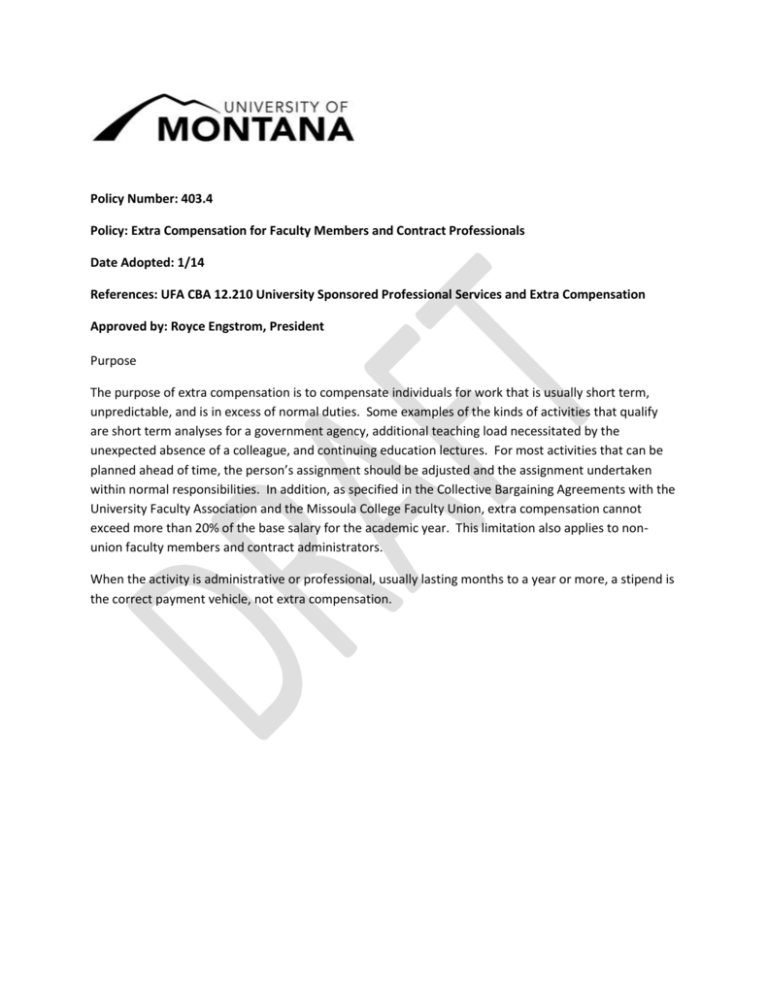
Policy Number: 403.4 Policy: Extra Compensation for Faculty Members and Contract Professionals Date Adopted: 1/14 References: UFA CBA 12.210 University Sponsored Professional Services and Extra Compensation Approved by: Royce Engstrom, President Purpose The purpose of extra compensation is to compensate individuals for work that is usually short term, unpredictable, and is in excess of normal duties. Some examples of the kinds of activities that qualify are short term analyses for a government agency, additional teaching load necessitated by the unexpected absence of a colleague, and continuing education lectures. For most activities that can be planned ahead of time, the person’s assignment should be adjusted and the assignment undertaken within normal responsibilities. In addition, as specified in the Collective Bargaining Agreements with the University Faculty Association and the Missoula College Faculty Union, extra compensation cannot exceed more than 20% of the base salary for the academic year. This limitation also applies to nonunion faculty members and contract administrators. When the activity is administrative or professional, usually lasting months to a year or more, a stipend is the correct payment vehicle, not extra compensation. Procedure for Policy Number: 403.4 Policy: Extra Compensation for Faculty Members and Contract Professionals Date Adopted: 1/14 References: UFA CBA 12.210 University Sponsored Professional Services and Extra Compensation Approved by: Royce Engstrom, President Institutional Procedures for Extra Compensation for Faculty Members and Contract Professionals Consideration for extra compensation begins in conversation between the faculty member/contract professional and the supervisor (usually department chair, dean, director, or vice president). In the case of continuing education, the conversation might be initiated with appropriate staff in the School of Extended and Lifelong Learning, and then proceed to the appropriate administrative authority. Extra compensation for work performed on federally supported contracts and cooperative agreements is limited by proscriptions in Federal Circular A-21. For federally funded activity there are very few cases when extra compensation is allowed. If it is agreed that extra compensation will be requested, a Request for Personnel Transaction (RPT) form from Human Resource Services is prepared, signed and submitted to the next higher authority (usually dean or vice president). The duties and timeliness of justification for extra compensation need to be specific—what specifically is to be done, when is it to be done, how does it affect regular duties, and why extra compensation appropriate for the case need to be articulated. All requests for extra compensation need to be supported by a dean, director, or vice president, as appropriate. All requests for extra compensation must be submitted to either the Provost or Vice President for Research and Creative Scholarship (VPR&CS) at least 10 working days prior to commencing the work, except in cases of emergency such as filling in due to illness or death of a colleague or other emergency situation, and then the request must be submitted as soon as possible after commencement of the work. Failure to submit the request to the Provost or VPR&CS at least 10 working days prior to the commencement of work likely will lead to disapproval of the request, except for emergency cases. Requests that do not fit the purpose of extra compensation or that exceed 20% of academic or fiscal year base salary (academic or contract professional base salary and collectively for all requests for an individual faculty member/contract professional in an academic or fiscal year, as appropriate) will be denied. Upon approval by either the Provost or VPR&CS, as appropriate, the work may commence.
